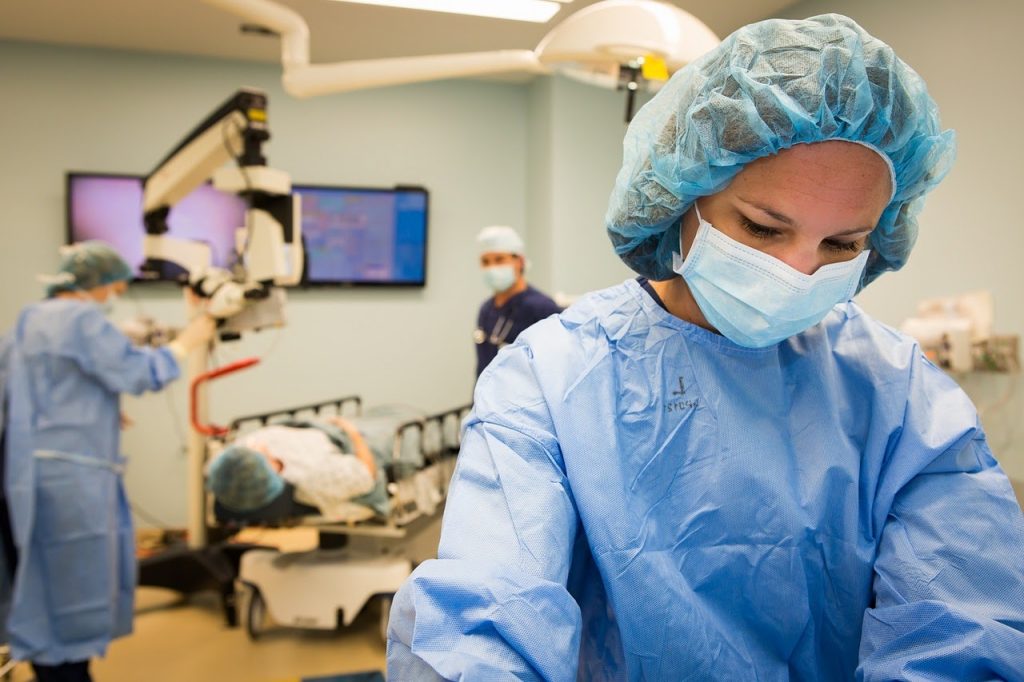As Sajid Javid announces further private sector involvement in the NHS with the Elective Recovery Plan, there are warnings from ophthalmologists that the safety of NHS patients could be put at risk if the private sector is given any more NHS work.
In the letter, signed by nearly 200 ophthalmologists and sent to NHS England and the Royal College of Ophthalmologists and shared with The Independent, they warn of “the accelerating shift towards independent sector provision of cataract surgery” which is already having a “destabilising impact” on safe ophthalmology provision.
They predict that the wide scale use of private providers will “drain money away from patient care into private pockets as well as poaching staff trained in the NHS.” adding that “urgent action” is needed to prevent further work being given to the private sector.
Staff who would normally do extra hours for the NHS are now being offered better paid work doing cataract operations in the private sector, but this means other eye procedures are not being carried out for the NHS and waiting times for these will grow..
Speaking to The Independent, Professor Ben Burton, consultant ophthalmologist and one of the lead signatories of the letter, said: “What’s happening is that staff who could be treating preventable but irreversible sight-threatening conditions like glaucoma, macular degeneration, and diabetic retinopathy are instead doing cataract surgery for private providers.”
The private sector is already heavily involved with the area of cataract surgery; in November 2021, the Royal College of Ophthalmologists reported that in 2016, 11% of NHS cataract procedures in England were delivered by private companies, but by April 2021 there was almost a 50/50 split, with 46% in the private sector and 54% by NHS trusts and treatment centres.
Cataract surgery is the main training ground for junior doctors, they need to complete at least 350 cataract procedures to be able to then manage more complicated work. The use of the private sector means trainees are finding it harder and harder to access the opportunities. The NHS is left with the more complex cases, which are less suitable for training. This is making itmore difficult for trainees to successfully complete training and, most importantly, more difficult to develop skilled and experienced surgeons.
At the end of December 2021, the waiting list for elective surgery hit a record 6.1 million, including over 600,000 waiting for eye procedures, according to The Royal College of Ophthalmologists.
The waiting list situation has not been caused entirely by the Covid-19 pandemic, waiting lists were high before 2020 due to lack of investment in NHS services and worsening capacity problems. Professor Burton told the Independent that “what is needed is a long-term sustainable solution rather than a knee-jerk reaction which risks the future of ophthalmology as an NHS service. The long-term solution will be achieved by investing in NHS providers to deliver modern, efficient care, and the private sector only used as a last resort.”
Dear Reader,
If you like our content please support our campaigning journalism to protect health care for all.
Our goal is to inform people, hold our politicians to account and help to build change through evidence based ideas.
Everyone should have access to comprehensive healthcare, but our NHS needs support. You can help us to continue to counter bad policy, battle neglect of the NHS and correct dangerous mis-infomation.
Supporters of the NHS are crucial in sustaining our health service and with your help we will be able to engage more people in securing its future.
Please donate to help support our campaigning NHS research and journalism.



Comments are closed.